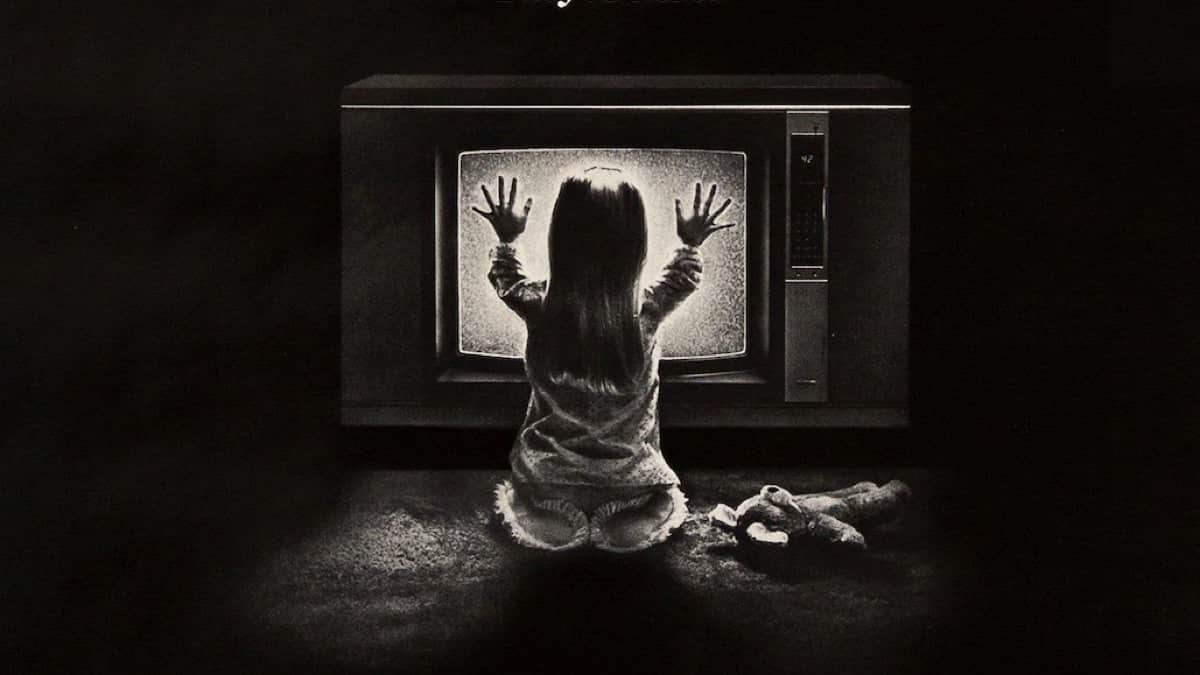I recently had a powerful epiphany: all the research and the work I had been doing for The Realists had the framing all wrong.
For years, I had been thinking that my “enemy”, my nemesis, adversary – however you want to call it – was Big Tech… the companies that have built systems of surveillance capitalism and are profiting from it. The platforms promoting unattainable beauty and life ideals. The popular apps that are addictive by design.
But no, I now realize I had it all wrong.
The real “enemy” is indifference – people’s indifference to the monumental changes brought on by Big Tech. What they are doing to our humanity. How they are changing what we value. How we see ourselves. Our dreams and aspirations. How we socialize. How we raise our kids.
Big Tech will continue to keep a powerful hold on our lives if we think that “the toothpaste is already out of the tube”, that the changes are inevitable, and that it’s a good thing to jump on all the latest trends, use the most popular apps, under the belief that they will make our lives better.
Media Consumption
I find it astonishing that nowadays people worldwide spend an average of 455 minutes per day consuming media – that’s 7.58 hours a day. And yet, most people have a vague understanding of the effects of media on their lives, self-esteem and worldview.
My interest in the subject? I have a Bachelor of Science degree in Mass Communication and I still vividly remember concepts from my college classes about “Persuasion and Public Opinion” and “Media Effects.”
For example, are you familiar with any of these media theories? “Agenda setting” and “Gatekeeping”? “Cultivation Theory”? The “Magic Bullet Theory”?
I learned about these theories many years ago and today the media landscape is completely different. There are now powerful communication devices in everyone’s pocket… and they are being used extensively, for most of people’s waking lives, without much thought about it.
I notice indifference… and I also notice – and experience – resistance to tech resistance. What do I mean by that? I have the perfect example from my personal life.
Resistance to (Tech) Resistance
I’m the mom of a two-year-old daughter.
I have been called a “Taliban” “Putin” and an “extremist” for wanting to raise her screen-free, without any visual media except for interactive FaceTime videos with her grandparents who live far away. (Incidentally, that’s what the American Academy of Pediatrics recommends, but to some people, it appears to be extreme).
It’s ironic that I’m a filmmaker – but my child has never watched a video in her life. To her, a phone is something that stays in the back pocket; an iPad is a magical portal for video calls with her grandparents. I don’t own a TV and aside from iPad video calls her screen time is exactly 0 minutes a day. She’s 26 months old. And I wouldn’t do things any other way.
Thankfully the colorful nicknames/insults came from one person and they have been toned down since that person watched a documentary on the effects of screen time on young children’s brain development.
These nicknames may sound a bit harsh, but in several situations, with other adults around me and my child, I have noticed similar attitudes. Resistance to my resistance.
I’ve been told that it would be impossible to handle my child on the plane without a tablet or smartphone… and yet she aced her first flights, entertained by her parents, her favorite books and a teddy bear.
I’ve been called “excessive” for voicing my concerns about screen time and reading “too many books” to my child. I was warned I would ruin her eyes with books.
I’ve been advised not to talk about how I raise my child screen-free lest I offend other parents and grandparents who do things differently.
But I think it’s important to share my experiences, to show that there is another way.
Thankfully my husband is on the same page as me, wanting to raise her like we were raised. Think: a childhood like we had in the 1980s – minus television, plus an iPad only for FaceTime calls.
Who’s Raising the Kids?
I have been closely following the work of Dr. Susan Linn for years – a psychologist who founded the Campaign for a Commercial-Free Childhood. I have interviewed her for my documentary The Illusionists and I recently read her powerful new book Who’s Raising the Kids? Big Tech, Big Media, and the Lives of Children.
Dr. Linn writes:
You’re dealing with a culture dominated by multinational corporations spending billions of dollars and using seductive technologies to bypass parents and target children directly with messages designed — sometimes ingeniously — to capture their hearts and minds. And their primary purpose is not to help kids lead healthy lives or to promote positive values or even to make their lives better. It’s to generate profit.
Later in the book, she adds:
Traditionally, for kids having what Winnicott might call “good enough” childhoods, the adults with whom they mostly interacted, and who had the most influence over them, were parents, other caregivers, and teachers. They were all familiar family or community members who were at least supposed to have children’s interests at heart. For better or worse, it’s common to raise children to be wary of strangers. Yet in a digitized, commercialized culture, we blithely turn vast portions of a child’s day over to strangers. We don’t see these people. Our kids never meet them. But these strangers know an enormous amount about our children. They know how to capture their attention, to exploit their vulnerabilities, and to trigger their longings. These are the strangers who own, manufacture, and advertise the apps, toys, and games that occupy children’s time and whose jobs demand that they develop and market products that generate big bucks regardless of their impact on the kids who use them.
Instant Gratification and Continuous Distraction
What worries me the most about the shifts brought on by this brave new technological world is this: the internet, smartphones and apps have created a frictionless world of instant gratification and constant distraction.
Are you bored? Fish your phone out of your pocket and you can scroll social media, listen to any song you may think of courtesy of Spotify or watch a video on YouTube.
Do you feel lonely? A couple of taps on the phone and you could communicate with a friend or see what they have posted on social media. Turn on the TV, keep it on in the background, and feel like you are not home alone.
Hungry? A meal can be delivered to your door in 30 minutes or less, courtesy of an app.
Everyday activities that take actual effort are starting to be frowned upon.
Silence and time away from a screen may make certain people uncomfortable.
Technology sweeps in, allowing people to never feel bored and giving them the illusion of connection… and handing them any object they may desire, delivered straight to their doors.
When it comes to spending time with a small child, many adults default to entertaining children with screens… not really thinking about the consequences of screen time and the content they will consume. These devices take away all the effort – but they also take away human connection and the opportunity for a child to develop their curiosity.
I can understand why people do this. Smartphones and tablets have been around for less than 20 years and to hundreds of millions of people they still have a magical aura around them. That’s why it’s so hard for adults to see them in a critical light. Dissenting voices are a minority. Tech giants spend a fortune in marketing their shiny devices and platforms. And – this is key – most people equate technology with progress and modernity – positive things. But media consumption and screen time carry consequences.
Dr. Linn writes in her book:
Today, children’s opportunities for silence — to experience wonder but also to play, dream, and explore — are rare. […] It was a long – ago conversation with Fred Rogers that first got me thinking about the importance of silence in children’s lives. Silence was so important to him that he once used an egg timer to tick off a whole minute of it on his television show. And after listening to cellist Yo-Yo Ma play his cello, Fred commented, “After you’ve heard someone play beautiful music, sometimes you just like to have a quiet time to remember it. Let’s just sit and think about what we’ve heard.”
The Universal Need for Media and Digital Literacy
I think media literacy AND digital literacy classes should be mandatory… not just for young people but also for all educators, parents, grandparents and caretakers. For all humans, really.
Because if you are a parent or grandparent and you read this sentence by Dr. Linn, wouldn’t you start to care?
It became clear to me that the problem with the tech-driven, omnipresent marketing that kids experience today isn’t just that they’re being sold stuff. It’s that the values, conventions, and behaviors embraced and engendered by gargantuan, minimally regulated, for-profit conglomerates permeate all aspects of society, including the lives of children.
I think they would. And they may think twice before handing their toddler a tablet or putting them in front of a TV.
The Lumineers’ song “Stubborn Love” goes: “The opposite of love’s indifference. So pay attention now…”
The ways in which technology has invaded the lives of small children – with most people accepting this uncritically – is just an example of indifference to Big Tech. I think it’s a particularly salient example because it powerfully affects a new generation.
How do we counteract indifference to Big Tech?
Through education. Media literacy AND digital literacy.
If you haven’t already, I would highly encourage you to read the late Neil Postman’s book Technopoly and Dr. Linn’s Who’s Raising the Kids? Listen to podcasts such as The Ezra Klein Show or Offline with Jon Favreau. And don’t be afraid to be different. To resist.
At the end of Technopoly Neil Postman writes:
A resistance fighter understands that technology must never be accepted as part of the natural order of things, that every technology—from an IQ test to an automobile to a television set to a computer—is a product of a particular economic and political context and carries with it a program, an agenda, and a philosophy that may or may not be life-enhancing and that therefore require scrutiny, criticism, and control. In short, a technological resistance fighter maintains an epistemological and psychic distance from any technology, so that it always appears somewhat strange, never inevitable, never natural.
I encourage you to re-read Postman’s powerful words slowly, carefully.
And then spend a minute thinking about them – à la Fred Rogers.
“Let’s just sit and think about what we’ve heard.”




